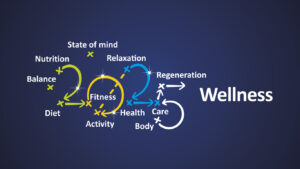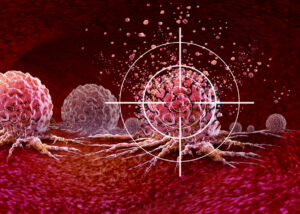Constant frustration and self-pity were new roommates in my life that I never had before. I remember becoming angry with myself from having these types of feelings, I insisted that I should be stronger than this. Auto-immune related inflammation of any kind can force a person to change their habits and lifestyle. Through the first six years of this new journey, I struggled in this area of adaptation. I was also not very good at expressing the emotions that my condition brought along. I tried to hide it the best I could but those who knew me could see the struggle both physically and mentally. There were times when things were stable, but I still wished that I could fly on a steady level consistently. It bothered me that my mood was often dependent on my physical health, which was an up and down roller coaster.
It is hard to not think of yourself when you’re the one who is dealing with affliction. The more I thought of myself in connection with UC the worse I felt. Thoughts like, “Why did this have to happen?” “Could I have prevented this?” “Is it always going to be this way from now on?” were always on my mind. For many years I did my best to look on the brighter side, but it did not solve my problem of managing this burden correctly. There are a few things that a person can control in life and one of them is how they choose to respond to an unforeseen situation. I am not trying to point at myself as some champion of mental stability because I would be lying if I did. I hope that the brief examples of my struggles will help those who are on a similar road. What if someone told you that you could choose in advance how you would respond to every negative situation? It’s an interesting thought that has more possibility behind it than many are aware of.
Every time I’ve heard the words inflammatory response, it has been in conjunction with the body causing systemic inflammation towards itself. In the auto-immune world these two words are typically not associated with a positive experience. Recently I considered these two words from a different perspective. One that highlights a person’s response through action in lifestyle and thinking. Life is a path with many roads and detours along the way that are often out of our control. A person’s character is demonstrated through their responses in sunshine and in a storm. I am not implying that a person is to face hard physical and mental trials without emotion and acknowledgement. These challenging stepping stones don’t make sense at the time but can mold a good character in the process.
Being angry, sad, and desperate for relief often affect people who live with chronic conditions. Something that I came to understand about these emotions is that they require energy, the same as working on the yard or going on a hike. For those in school it requires energy to stay focused and learn new subjects. This is why you can sometimes feel tired after having an extensive study period or exam. This realization had me consider how much time and energy was being wasted on these feelings that drained me. I decided that I needed to use this energy productively. It was during this time that I told myself I would learn something new each week that I could apply to my health or personal interest. Another change was to look for any opportunity to help others. A simple phone call or an honest compliment to a friend or stranger was a much better option than to stay self-centered with my problems. Reading about the intricate human body and the specific parts that oversee certain functions was an excellent substitute for useless frustration.
Another important aspect of this new inflammatory response that has helped me is the jewel of contentment. For many years I held the weight of not allowing myself to be fully content until I had overcome this condition. Even though my intentions to get well were good, they demanded too much of my focus. I thought I was being responsible by not letting myself off the hook until I had my health back. This only made my ability to rest impossible.
Contentment is not dependent on circumstances because it’s a personal decision not a requirement. This does not mean that the effort and time to learn what can be changed to improve wellness stops. It simply means that the rate of progress or lack of it will not dictate your inner peace in the storm.
When there is a problem or unforeseen event, I respond with a habit that I feel has worked well for me. My approach is to identify the problem from a factual standpoint and do my best to leave worries or anticipation out of it. I write this information down and list all the possible responses I can choose from. Naturally I will choose the options that have the highest probability of success with an attitude of faith that’s ready for the next try if it fails.
I will end this post by paraphrasing a quote from Anthony Hopkins in the movie, “The Edge” that I never forgot. He and two others are stranded in the Alaskan wilderness with bad odds for being located. One of his companions begins to succumb to fear and despair, Anthony Hopkins then says some key words. He stated that people who get lost in the wilderness die of shame, they sit there and think about why this had to happen and then they die. When they could’ve done what would have saved them, which is to think and find a solution for the will to overcome. I recall reading a book several years ago that stated these wise words, “You don’t have to be well to hope, but you do have to hope to get well.”
I encourage all of you to consider your responses to your struggles one step and day at a time, God bless you.





